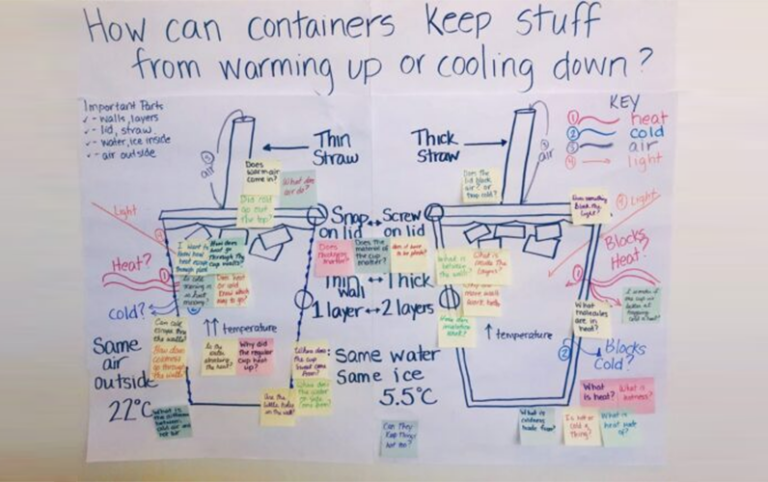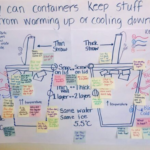While it’s important to invest in new teachers, it’s as important to invest in mentors. Mentors serve as invaluable guides and supporters on the educational journey. They provide new teachers with a soft place to land, a trusted person to turn to for guidance on new lessons, and a valuable resource for addressing behavior challenges. Mentors are the first line of support for new teachers, making the selection of the right individuals for each new teacher imperative.
Let’s explore the essential components of effective mentorship, the ‘mentorship must-haves,’ that contribute to the growth and success of educators in their early career stages.
1. Teaching Experience with Humility
While mentors should have several years of teaching experience, it’s important to emphasize that they do not need to possess all the answers. In fact, the willingness to acknowledge that no one has all the answers is a valuable quality in a mentor. The role of a mentor is not to dictate but to guide and support. New teachers benefit from mentors who can share their experiences, both successes and challenges, and demonstrate a humble attitude that fosters an open and collaborative learning environment.
2. Purposeful Matching
The process of matching mentors and mentees should be a thoughtful and well-informed one. This involves considering the strengths, challenges, interests, and professional goals of both parties. Effective mentorship is not a one-size-fits-all approach; it should be tailored to the specific needs and aspirations of each new teacher. A purposeful match ensures that the mentor-mentee relationship is productive and mutually beneficial.
3. Ongoing Mentor Training
The mentor’s role is pivotal in the development of new teachers, and it’s essential to provide mentors with regular training and support. This training should cover not only pedagogical techniques but also effective mentoring strategies, active listening, and communication skills. Furthermore, mentors benefit from regular touch points with other mentors and instructional leaders to exchange experiences and best practices, helping them improve their own mentoring abilities.
4. Compensation for Mentors
Recognizing the commitment and effort mentors invest in guiding new teachers, districts should consider compensating mentors for their time and expertise. Compensation can take various forms, such as monetary payment, extra time off, or gift cards, to show appreciation for their valuable contributions.
5. Professional Learning Resources
To ensure that mentorship remains a dynamic and productive process, it’s crucial to provide mentors with professional learning resources. These resources can include up-to-date materials, access to relevant workshops, and the latest research on effective teaching practices. Equipping mentors with such resources empowers them to provide just-in-time learning opportunities and guidance to their mentees.
6. Willingness to Help and Support: An essential quality of a mentor is a genuine willingness to help and support other educators entering the profession. This includes being approachable, empathetic, and responsive to the unique needs and challenges faced by new teachers. Mentors should be advocates for their mentees, offering a safe and non-judgmental space for them to seek advice and share their concerns.
7. Sustainable Commitment
When considering mentors, districts or organizations should prioritize educators who are not overextended in their own responsibilities and can make a multi-year commitment to mentorship. This sustained commitment ensures stability and consistency in the mentor-mentee relationship, allowing new teachers to receive ongoing support and guidance throughout the crucial early years of their careers.
8. Additional Prep Period for Mentors
Mentors can be more effective when they are provided with an additional prep period that is specifically focused on supporting their mentees. This extra time allows mentors to prepare for meetings with their mentees, review lesson plans, provide feedback, and address any challenges or questions. It also demonstrates the value placed on mentorship within the educational system.
9. High-Leverage Practices
Effective mentorship involves mentors who understand and use high-leverage teaching practices that are applicable across content areas and grade levels. These practices are research-backed and have a significant impact on student learning. Mentors who can impart knowledge of these practices help new teachers improve their instructional techniques and enhance student outcomes.
10. Video Coaching Platform
Providing a platform for video coaching can be a game-changer in mentorship programs. This technology allows mentors and new teachers to record, review, and analyze teaching sessions, providing a concrete and objective basis for feedback and improvement. Video coaching fosters self-reflection, promotes best practices, and ultimately leads to more impactful instruction.
Looking for a video coaching platform to support your mentors? Check out the new Teaching Channel Video Platform!
11. Effective Communication
Organizations benefit when they select mentors who are excellent, proactive communicators. Effective mentorship relies on clear, open, and regular communication between mentors and mentees. Mentors should be skilled in listening, providing constructive feedback, and creating a supportive atmosphere where new teachers feel comfortable sharing their concerns and asking questions.
12. Growth Mindset and Positive Presence
Mentors must possess a growth mindset, which is the belief that abilities and intelligence can be developed through effort and learning. This mindset is contagious and can inspire new teachers to adopt the same attitude, leading to continuous improvement. Additionally, mentors should exude a positive presence, creating an encouraging and motivating atmosphere for their mentees. A positive mentor can help new teachers weather challenges and setbacks with resilience and enthusiasm.






